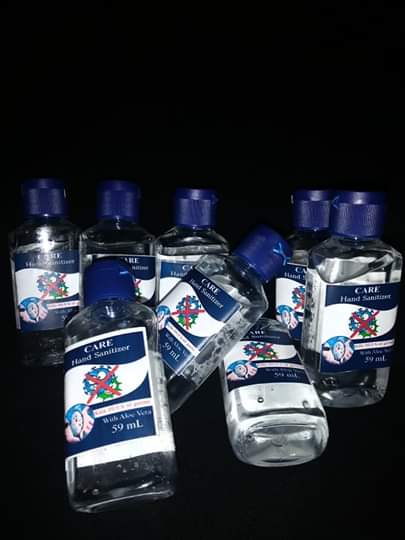As COVID-19 closes in on most African countries, some Zambian residents are rolling up their sleeves to complement government efforts against the virus, with some local preventative solutions already taking shape.
One such initiative is the production of a local sanitiser by two young Zambian brothers, in their early 20s.
The high demand for hand sanitiser by Zambian residents, to prevent COVID 19 infection, has like in other countries, resulted in the shortage of the commodity and tripling of prices, where it is available, thereby causing concern that some citizens with less income, may not be able to access it and consequently fail to handle the virus, when it hits.
Some shop employees talked to, say the shortage and high pricing is due to the sanitisers being imported from other countries.
“We have increased the prices due to high demand and because our suppliers also, have. It’s because we get it from outside the country,” said one shop worker, who did not disclose her identity.
Residents ‘helpless’
Some residents have thus resorted to using alcohol, such as Whisky, as sanitisers, while others are making concoctions of Methylated spirit, Glycerine and Lemmon liquid.

As such, the two brothers, Patrick Chipala, 22 and Choolwe Chipala, 21, who studied Chemistry, at Apex University, in the capital, Lusaka, have decided to rise to the occasion, through producing a local hand sanitiser.
“What really inspired us to come up with this product is the on going “Corona virus” but we came up with the formula for the hand sanitiser back in 2018, when we were hit by a Cholera outbreak in the city of Lusaka, but by then we were just not serious and we never had funds, so we just dropped it,” says Choolwe, the younger of the two.
He further narrates that it was only a month ago, while in search of hand sanitiser, that a thought to actualise the idea, hit them, resulting into the birth of ‘Care Hand Sanitiser’.
“It popped [up] like, why can’t we just make our own hand sanitizer? That’s how we went to the labs and it was formed,” he recounts.
Initially, Choolwe recalls, he and his brother just kept the sanitiser at home, but it was only after they took a second look at it and got convinced that the standard was 100% perfect, in gel form, that they started packaging and selling it.
According to Choolwe, the product which has been tested and approved by laboratories at the University Teaching Hospital, which is the biggest referral hospital in the country, is expected to be affordable for all.
“Our biggest objective behind this project is to produce a product that will be affordable for even the less privileged in our community… There is a very [huge] demand for hand sanitizers on the market, which has made people to take advantage, by selling it at high prices,” he observes.
Promising Start
In only a few weeks of being on the market, over 2,000 six packs of the hand sanitizer have been sold to local business within and outside Lusaka and Choolwe says other packs are currently in the process of being exported to other countries.
“The way forward for us is to help in the fight and prevention of the Corona virus in the country,” Choolwe concludes.
“The life of an entrepreneur is all about finding solutions in the midst of a crisis,” says Patrick, the older brother, who is spearheading the project, on his social media post.
A number of Zambians, including Lusaka City Mayor, Miles Sampa, have applauded the duo.
“Let’s support the two youths and give them orders, so we kill two birds with one stone and that is to curb COVID 19, but also provide youth empowerment at the same time,” Sampa observes.
Other residents are equally coming up with different solutions, which include the possibility of making leaf masks, to help those that would not be able to afford to buy conventional ones.
Members of the society and business communities have also joined hands in promoting hygiene through collective weekend cleaning of public areas, such as markets.
Source: Africafeeds.com


